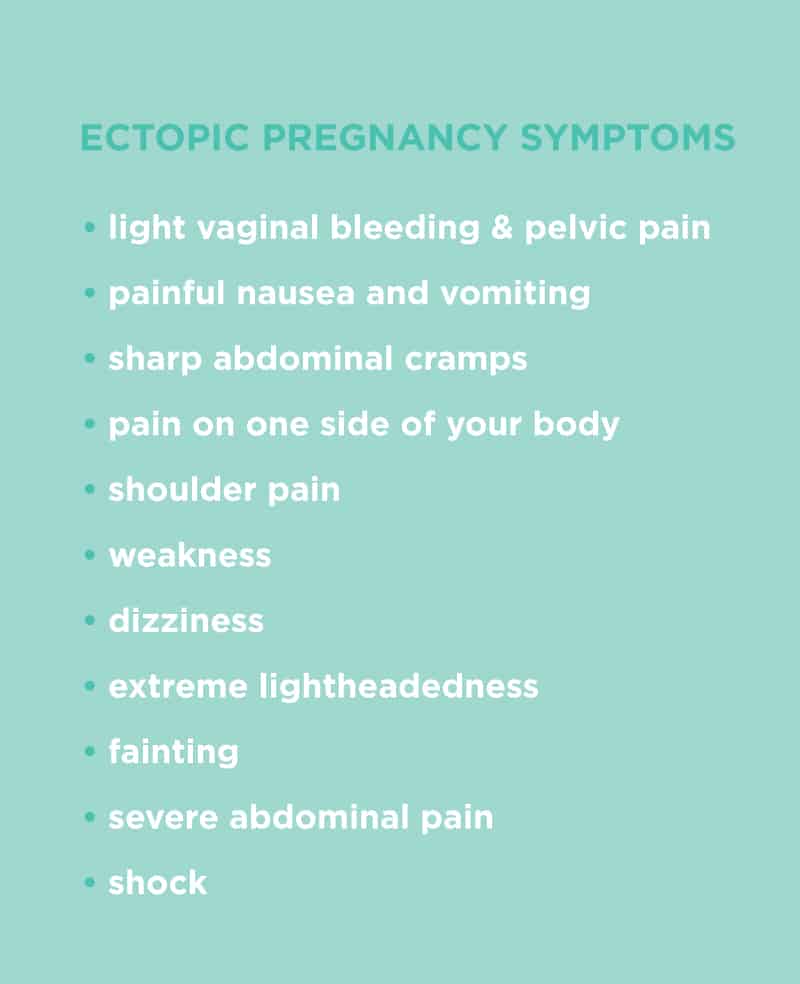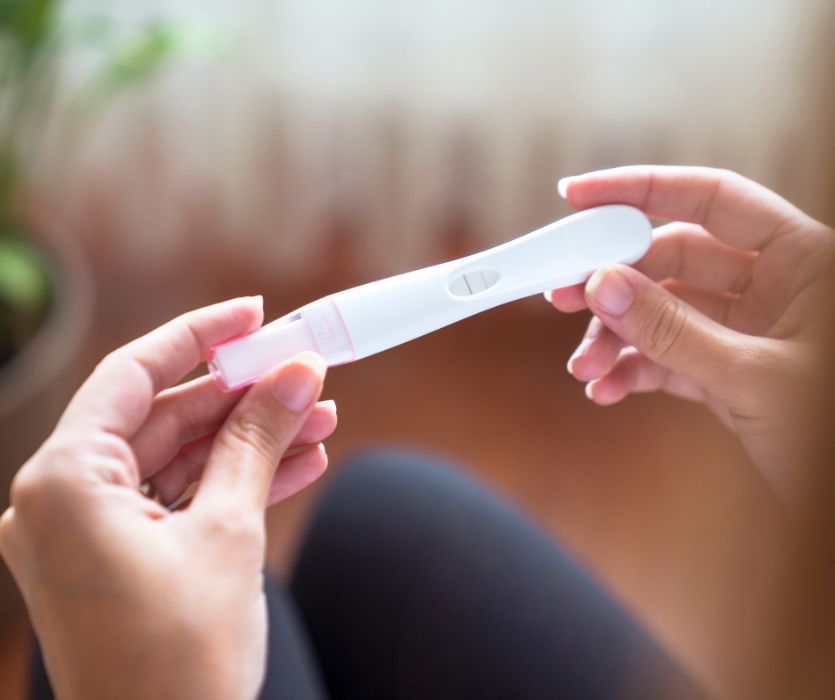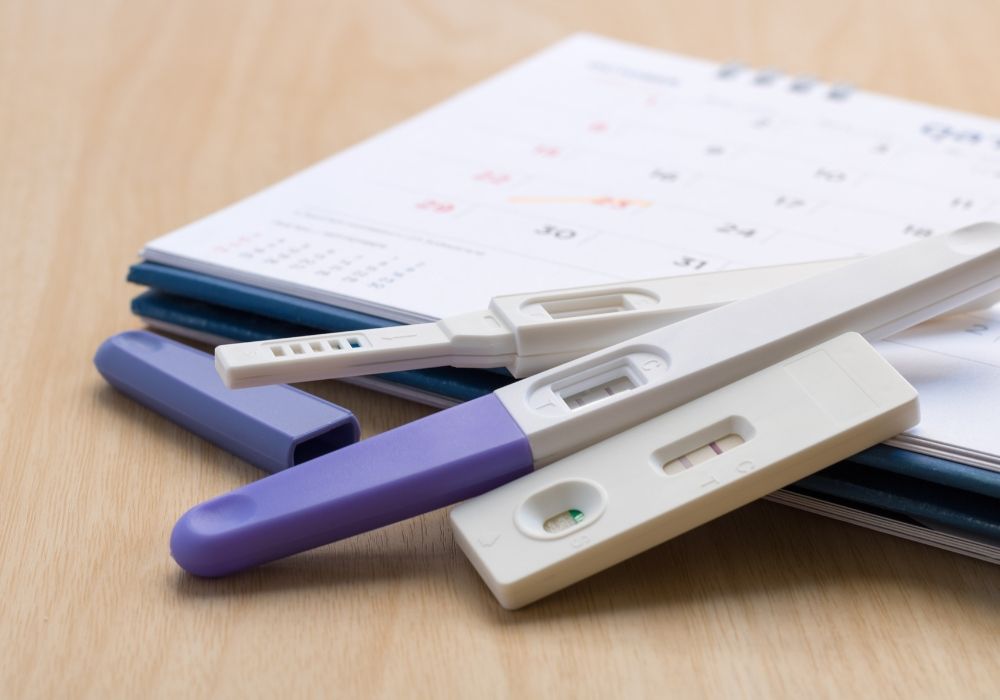Pretty much anytime your doctor uses the word “pregnancy” with an adjective before it, things can get pretty stressful, pretty quickly. If you’ve ever found yourself having to Google the term “ectopic”, you’ll know that it basically means that something’s decided to hang out in a place that it just wasn’t meant to be, and in the case of an ectopic pregnancy, that something is a fertilized egg.
What is an ectopic pregnancy?

As you may have learned sometime in elementary school, each month, one of your ovaries releases an egg which travels down the fallopian tube within a 24 hour period. If that egg is fertilized, it spends about 4 days in the fallopian tube making its way to the uterus, where it implants into your uterine lining so it can grow into a baby. In about 1-2% of pregnancies, the egg implants somewhere other than the uterine lining. This is known as an ectopic pregnancy. While the most common type of ectopic pregnancy involves the fertilized egg implanting in the fallopian tube, it is also possible for it to implant in an ovary, abdominal cavity, or the cervix. Unfortunately, there is no way for a fertilized egg to survive outside of the uterus, and science hasn’t yet found a way to successfully transfer an ectopic pregnancy into the uterus.
What are the symptoms of an ectopic pregnancy?

The symptoms of an ectopic pregnancy can show up anywhere from six to eight weeks after your last period and beyond, depending on the area of implantation. If you’ve taken a pregnancy test with a positive result, you may suspect an ectopic pregnancy if you are experiencing the most common symptoms, which are light vaginal bleeding and pelvic pain. Other symptoms of an ectopic pregnancy could include painful nausea and vomiting, sharp abdominal cramps or pain on one side of your body. If you’ve got shoulder pain, weakness, dizziness, extreme lightheadedness, fainting, severe abdominal pain, or find yourself in shock (low blood pressure, weak and rapid pulse, pale skin, and/or confusion), get to the hospital yesterday, as these are likely signs of a ruptured fallopian tube.
What are the tests to confirm an ectopic pregnancy?
If you think you might have an ectopic pregnancy, book an appointment with your doctor to discuss your symptoms and get checked out. A blood hormone test to confirm your pregnancy will be given, in addition to a pelvic exam. A transvaginal ultrasound will likely be ordered to determine the location of the gestational sac; if the embryo is not found in the uterus during the ultrasound, an ectopic pregnancy or miscarriage could be the cause, but you may also simply be in the earliest stages of a healthy pregnancy. Because ectopic pregnancies can be difficult to diagnose with total certainty on an ultrasound scan, repeated blood tests can be performed to monitor pregnancy hormone levels, which rise more slowly in an ectopic pregnancy than a typical pregnancy (yay! More needles!).
What can cause an ectopic pregnancy?
If the size or shape of the fallopian tube has been altered through damage, infection or inflammation, a fertilized egg can get stuck while traveling through the tube. Hormonal imbalance, uterine and tubal malfunction, or abnormal development of the fertilized egg could also be factors in an ectopic pregnancy.
There are risk factors that can increase the likelihood of an ectopic pregnancy.
These risk factors may include:
- being between the ages of 35-44
- having a previous ectopic pregnancy
- experiencing inflammation of the fallopian tubes or nearby organs from sexually transmitted infections such as chlamydia or gonorrhea
- having conditions such as endometriosis, fibroid tumors, pelvic scar tissue, or pelvic inflammatory disease (PID)
- experiencing infertility or using fertility drugs and treatments such as in vitro fertilization (IVF)
- having previous surgeries to close or correct a damaged fallopian tube
- becoming pregnant after getting your tubes tied, or having your tubes “untied” (tubal ligation and tubal ligation reversal)
- cigarette smoking
- becoming pregnant while using an intrauterine device (IUD)
How is an ectopic pregnancy treated?
There are three options for treating an ectopic pregnancy.
First of all, take a deep breath. It’s going to be okay.
The first, least invasive, option is “expectant management”. Because some ectopic pregnancies don’t rupture and instead are able to reabsorb on their own with minimal pain and bleeding, it is possible to let your body resolve itself under the close observation of a doctor. If the pregnancy is in the very early stages or has not survived, the pregnancy hormone is falling, there is no blood in the abdomen and you have no pain, it may be possible to ask to let things play out this way.
If the ectopic pregnancy has been caught early enough, the second option is to receive an injection of methotrexate (Trexall). This drug prevents the growth of the cells of the embryo and allows them to be reabsorbed.
The final option is a surgery, which may be either the more common laparoscopy (keyhole surgery) or a laparotomy (open surgery, which may be required if there is a ruptured tube or heavy bleeding). Where possible, the surgeon will opt to create a tiny cut to remove the embryo from your fallopian tube and leave the rest of your tube the heck alone. In more severe cases, the entire tube may need to be removed.
Can I get pregnant after having an ectopic pregnancy?
Yes! But the process may be challenging, particularly if you have had a fallopian tube removed. If you’re ready, talk to your doctor about when it is safe to try again, and consider meeting with a fertility specialist to help you navigate a safe and healthy journey into your next pregnancy.
Let’s also take a second to recognize that an ectopic pregnancy can take a toll on not just your physical body, but your mental health as well.
There’s no denying it: you‘ve experienced a loss and it’s normal to feel a range of emotions including grief, guilt, anger, anxiety, and worry, among about a thousand others. If you’re having a difficult time coping with these feelings, talk to your doctor about your concerns and options. Reach out to your support group and accept their offers to help. And for goodness sake, don’t you dare pick up a single cleaning tool while you’re taking time to let yourself heal (unless, of course, scrubbing floors is where you find your zen).




Leave a Comment